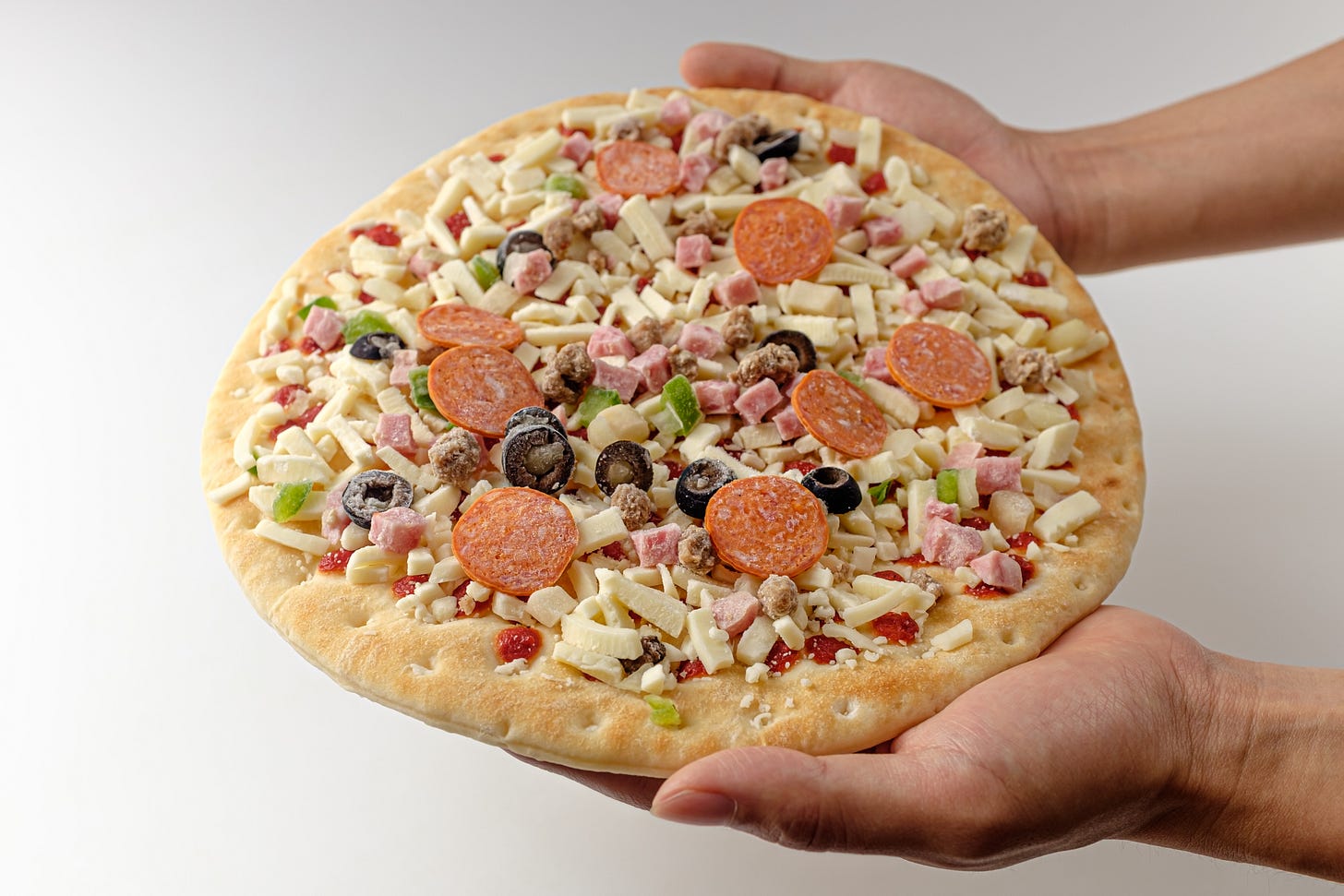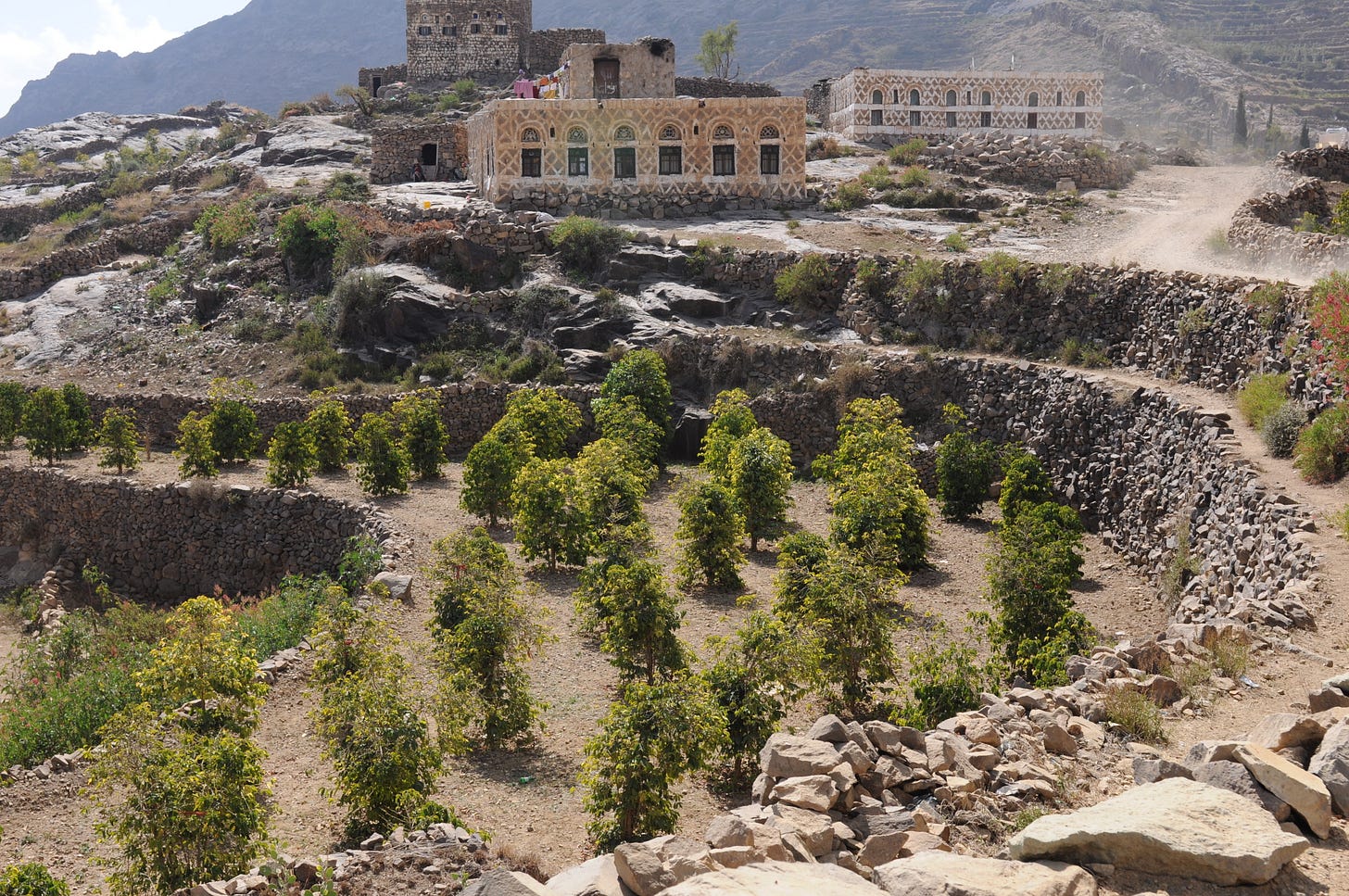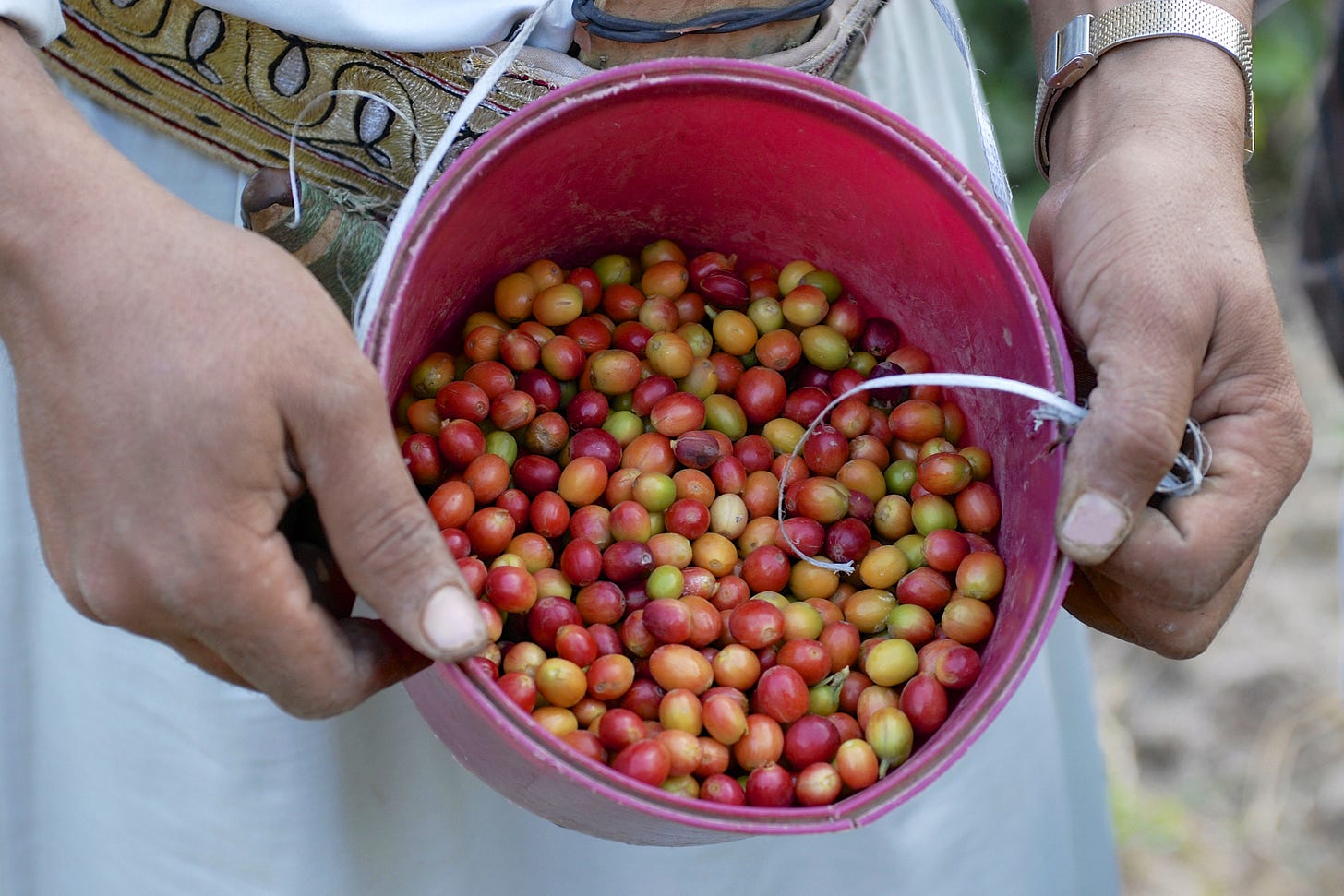Paid subscribers, your contribution lets me pay writers a better-than-most rate. Thank you! (If you’d like to support Smart Mouth and its writers, subscribe here).
Some Food Reading:
Fun facts about frozen pizza. Within this article are links to some great profiles of packaged-food innovators:
I wouldn’t have guessed that Totino’s was named after a real person, but Rose Totino opened a restaurant and then a frozen pizza factory, and then sold the latter to Pillsbury. “Pillsbury came knocking — offering $16 million. Rose Totino told them “it was God’s will” that she get $20 million. ‘We didn’t know how to handle that,’ Pillsbury’s negotiator Jerry Levin said. ‘So we gave her the $20 million.’” Now there’s a negotiating tip for ya.
Jeno Paulucci was, I think, an artist of light scams. He specialized in Chinese and Italian packaged foods, and smashed the two together to create the “pizza roll” … which he sold to Pillsbury and is now known as a Totino’s Pizza Roll. (You’ll see in the link that people have know about cultural appropriation for at least decades.)
Juneteenth is this weekend! The holiday is still new to a lot of people, so if you’d like a refresher, please read this, by Robin Caldwell.
Champagne From Champagne, Mohka From Mokha
We're mostly acquainted with the idea that all champagne is sparkling wine, but not all sparkling wine is Champagne. Throughout most of the world, the name is reserved for sparkling wines made with grapes grown in the Champagne region of France. What if the same were true of the word mokha?
The name of perhaps the most famous chocolate-flavored espresso drink has roots in Yemen. Yemeni coffee producers and entrepreneurs are now keen on reclaiming the word, spelled with a proper Arabic “kh,” borrowed centuries ago from the Red Sea port of Mokha - or al-Makha - on Yemen’s southwestern coast.
Abdulrahman Saeed, CEO and co-founder of Sabcomeed, is leading the charge. “I’m trying to raise awareness and reclaim the word,” he says. “Not in a metaphorical sense, but in a tangible economic sense.” Saeed believes that reserving the name through a legal process of recognition, similar to the European Union’s Protected Designation of Origin program, will raise demand for Yemeni coffee and help acquaint consumers with the nation’s, and the product’s, historical significance.
Yemen’s claim to the name goes back centuries. While the genealogy of coffee plants has been traced to Ethiopia, neighboring Yemen was one of the first to cultivate and trade coffee in the mid-15th century. Love for the bitter intoxicant flowed from there, first across the Arabian Peninsula and the Red Sea. When Yemen came under Ottoman rule in the early-16th century, coffee traveled with new trading partners to Europe.
For two hundred years, until European colonialists established coffee plantations in Africa and Southeast Asia to circumvent Yemen’s monopoly, the entire global coffee trade passed through the Port of Mokha. The name traveled with coffee itself, landing on far-flung shores and foreign tongues.
Today, the Port of Mokha is a shadow of its former self. Whereas one early-19th-century English traveler described the city as “handsome, as all the buildings are white-washed, and the minarets of the three mosques rise to a considerable height,” today its once-ornamented streets crumble under the weight of civil war and a Saudi-led, U.S.-backed blockade that have both caused mass impoverishment, disease, and famine.
With its storied history and troubled present, Yemeni coffee doesn't come cheap. A pound of beans retails for upwards of $60. But it’s worth it. “Having tasted thousands of coffees, Yemeni coffee always stands out,” says Wouter Brunia, a certified coffee quality grader. “It combines fruity, floral, and spicy flavors with a big body.”
In the morning, remember Yemen, and order some beans online. ☕
Sources:
Anthony Wild, “Black Gold: The Dark History of Coffee” (Fourth Estate, 2019).
The Early of George Annesley Mountnorris, “Voyages and Travels to India, Ceylon, the Red Sea, Abyssinia, and Egypt: In the Years 1802, 1803, 1804, 1805, and 1806” Volume II (F., C., and J. Rivington, 1811).
(To hear more about the history of coffee, head this way for a discussion with coffeeshop owner and Your Korean Dad, Nick Cho.)
If you enjoy the newsletter today, please forward it to someone who’d enjoy it, and tap the heart icon above or below, which will help me reach more readers. I appreciate your help, y’all!
This newsletter is edited by Katherine Spiers, host of the podcast Smart Mouth.
A TableCakes Production.
Want to contribute? Here are the submission guidelines.






